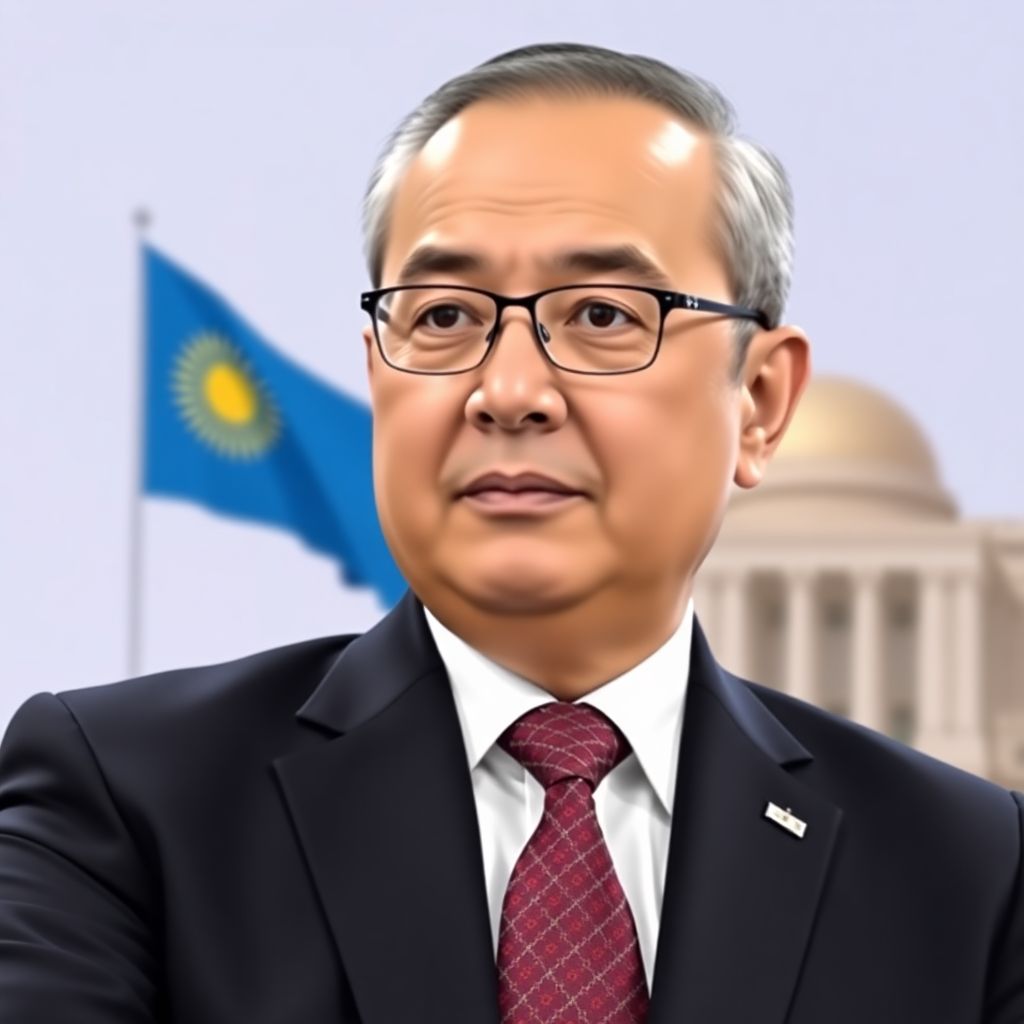Kazakhstan is preparing to launch its first national cryptocurrency reserve fund by 2026, with an estimated value ranging from $500 million to $1 billion. This strategic move aims to utilize assets that have been confiscated and repatriated, signaling the country’s growing interest in integrating digital finance into its economic framework while maintaining regulatory oversight.
Timur Suleimenov, the Governor of Kazakhstan’s Central Bank, unveiled the plan during an interview in London. He noted that the fund would avoid direct investment in cryptocurrencies. Instead, it will focus on indirect exposure through regulated financial instruments such as exchange-traded funds (ETFs) and shares in companies operating within the blockchain and crypto sector. This cautious approach underlines the government’s intent to minimize risk while embracing innovation.
Berik Sholpankulov, Deputy Chairman of the National Bank, elaborated further on the government’s investment strategy. He stated that the fund could draw from various national resources—including the National Fund, gold, and foreign currency reserves—to support crypto-related investments. However, all such activities will be funneled through a state-controlled digital asset entity, which is still in the planning stages.
According to Sholpankulov, the digital asset fund will serve as a strategic reserve, utilizing seized cryptocurrencies to create a buffer that may enhance the country’s financial resilience. The government has already seized digital assets worth approximately $16.7 million from illegal operations, which are expected to form a part of the initial capital for the reserve.
The initiative aligns with Kazakhstan’s broader efforts to regulate and legitimize the digital asset sector. Authorities recently shut down 130 unauthorized crypto exchanges suspected of laundering illicit funds. Despite these efforts, it is estimated that nearly $15 billion in cryptocurrencies have left the country due to a lack of clear regulatory frameworks—highlighting the urgency of creating a more structured digital ecosystem.
The country’s Ministry of Digital Development has also proposed allowing state-owned mining companies to supply energy to private crypto miners. This would be done in exchange for payments in virtual currencies, potentially creating a new revenue stream for state enterprises while fostering greater integration between public infrastructure and private blockchain operations.
In support of these initiatives, Kazakhstan is also considering the establishment of licensed crypto banks and a national digital asset exchange. These institutions would aim to create a secure and regulated environment for trading and investing in cryptocurrencies within the nation.
The policy comes at a time when Kazakhstan’s financial reserves are showing signs of strength. In September, the National Fund’s assets grew by $990 million compared to the previous month, reaching a total of $62.7 billion. Simultaneously, gold reserves increased to $39.7 billion, although foreign exchange reserves experienced a slight decline.
The proposed crypto reserve fund will be managed by a newly formed subsidiary focused on alternative assets. This entity will not only handle investments in crypto-related financial instruments but also contribute to Kazakhstan’s broader diversification strategy in response to global economic shifts.
Kazakhstan’s move to launch a state-backed crypto asset fund represents a significant shift in its approach to digital finance. By leveraging seized assets and integrating them into a structured investment platform, the government is signaling a pragmatic embrace of blockchain technology without fully exposing itself to market volatility.
This development also places Kazakhstan among a growing number of nations exploring sovereign crypto reserves. While some countries remain skeptical of digital assets due to their volatility and association with illicit activity, Kazakhstan appears to be carving out a middle path—embracing blockchain innovation but within a tightly controlled and transparent framework.
Such a model could serve as a blueprint for other emerging markets seeking to benefit from the growth of digital assets while mitigating associated risks. By focusing on regulated exposure through ETFs and equity investments in crypto-related firms, the Kazakh government is attempting to extract long-term value from a sector known for its unpredictability.
Furthermore, the formation of this fund could enhance Kazakhstan’s reputation as a progressive hub for digital finance in Central Asia. The country already boasts substantial mining infrastructure and is strategically positioned to capitalize on its natural energy resources to power blockchain operations.
The initiative may also attract foreign investment, particularly from institutional investors looking for stable exposure to the crypto sector via government-backed vehicles. If executed effectively, this fund could act as a bridge between traditional finance and the digital economy, offering a model of public-private cooperation in the blockchain space.
In the context of global economic uncertainty, digital assets are increasingly viewed as alternative stores of value or hedges against inflation. Kazakhstan’s crypto reserve fund, if managed prudently, could contribute to national economic stability while positioning the country at the forefront of a digital financial revolution.
As the 2026 launch approaches, regulators, investors, and industry stakeholders will be watching closely. The success or failure of Kazakhstan’s crypto reserve fund could set a precedent for how nations integrate digital assets into sovereign financial strategies, potentially reshaping the future of state-backed investments in a decentralized world.

